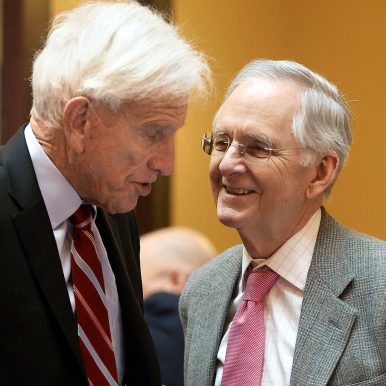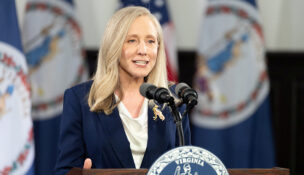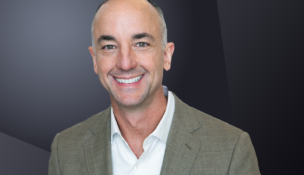‘A generational shift’
Retirements, redistricting will remake legislature
Mason Adams //June 29, 2023//
‘A generational shift’
Retirements, redistricting will remake legislature
Mason Adams //June 29, 2023//
Updated June 29
Politicians like to suggest every new election is the most important of our lifetimes, but Virginia’s off-off-year state legislative elections in 2023 might actually live up to the billing for once.
In November, voters will elect representatives to all 140 seats in the Virginia Senate and House of Delegates, in the first campaign season since the state redrew districts through an unprecedented process outside lawmaker control. To compound matters, a startling number of legislators are retiring or competing against fellow incumbents in new “double-bunked” districts created by the December 2021 redistricting.
These factors contribute to a generational election that will determine Virginia’s legislative future for years to come.
“This upheaval has literally never happened in the history of Virginia,” says Greg Habeeb, a former state delegate and president of Gentry Locke Consulting, a Richmond lobbying, marketing and strategic communications firm. “We’ve never seen this raw number of retirements and departures coupled with the seniority of those people leaving.”
As an example, Habeeb points to the Senate Finance Committee — “the epicenter of the epicenter” of both power and the retirement wave. Committee chair Janet Howell of Reston is retiring after 31 years, along with fellow Democratic committee members John Edwards and Richard Saslaw, as well as Republicans Steve Newman, Tommy Norment and Jill Vogel.
Meanwhile, fellow Democratic committee members Sens. George Barker, Creigh Deeds, Louise Lucas and Dave Marsden all faced primaries. That left Democratic Sens. Adam Ebbin and Mamie Locke and Republican Sen. Frank Ruff as the only incumbent Senate Finance committee members guaranteed to run in November, although Deeds, Lucas and Marsden won their June 20 primaries.

via Associated Press
Many factors are converging into a perfect storm for remaking the legislature in 2023. For starters, Habeeb says, “it’s harder to do this job for a long time and have a family and private-sector job. Two, an inordinate number of senators had served for decades and naturally got to a point where they need to retire. Coupled with redistricting, that created this avalanche.”
A bipartisan commission created to redraw legislative districts ultimately deadlocked last year, leaving the process to the Supreme Court of Virginia, which appointed two special masters to carry out the task. Since lawmakers were no longer drawing lines out of self-interest, many ended up in new districts or sharing a district with one or two other incumbents.
“I think having those incumbent-versus-incumbent races was something that pushed the retirement rate up,” says J. Miles Coleman, associate editor for Sabato’s Crystal Ball at the University of Virginia’s Center for Politics.
One example is Democratic Sen. John Edwards of Roanoke, who was drawn into a district with Republican Sen. David Suetterlein that voted 55% Republican in the 2021 gubernatorial election. Edwards opted to retire.
Other lawmakers faced primary challengers on June 20 — sometimes from fellow incumbents. One of the most dramatic examples played out in Hampton Roads, where longtime Democratic Sens. Louise Lucas and Lionel Spruill vied to represent Senate District 18.
Lucas, the Senate’s president pro tempore, beat Spruill with 54% of the vote in the Democratic primary, and incumbent Senate Democrats George Barker, Joe Morrissey and Chap Petersen all lost their primaries. Republican Senate incumbent Amanda Chase lost her primary to former state senator Glen Sturtevant. A strident Trump supporter who continues to argue baselessly that the 2020 election was “stolen,” Chase has disputed her own election results, claiming that early votes were made on computers that don’t comply with state law.
Retirements account for nearly a fifth of the House’s turnover and more than a quarter of the Senate’s. A Virginia Chamber of Commerce analysis suggests Virginia will see at least 11 new senators and 32 new delegates enter office in January 2024, although some may be familiar faces, with several delegates running for Senate, including Democrats Danica Roem in Prince William County and Schuyler VanValkenburg in Henrico County and Republican Christopher Head in Botetourt County.
It’s not just the sheer numbers of departing members that will affect the General Assembly, but also the depth of experience being lost.
“At a minimum, it’s 581 years of experience guaranteed not returning,” says Chris Saxman, a former state delegate and executive director of Virginia FREE, a nonpartisan business-focused political organization. Coupled with incumbent losses in primaries, Saxman adds, “We’re probably going to crest 600 years not returning. We’re in a generational shift.”
Turnover starts at top
In the state Senate, both parties’ leaders are stepping down after decades in office.
At the end of 2023, Democratic Senate Majority Leader Saslaw will have served 48 years in the Assembly, just short of the record 52 years set by the late Del. Lacey Putney. Republican Senate Minority Leader Norment has served for 30 years.
Together, the two relatively moderate leaders held the center of political power in the Senate for decades, playing leading roles in big, complex legislation affecting business, such as utility regulation, taxes and transportation funding. They cultivated a working relationship that largely kept the Senate a moderating force even as state politics grew more partisan and divisive.
“It’s almost hard to imagine the Senate without Dick Saslaw and Tommy Norment,” says University of Virginia political scientist Larry Sabato. “They are big personalities and leaders that know how to get things done. They can be partisan but also bipartisan, whatever the situation calls for. They are the old model of Virginia legislators, more interested in getting things done than scoring points for their party. I wish more junior legislators would model themselves after the two of them.”
The list of retirements goes beyond Senate leadership to include Democrats and Republicans from across Virginia. New candidates are already stepping up to fill the void. Numerous delegates announced Senate campaigns, while newcomers emerged to run for both House and Senate seats.
No matter what, the chamber will look dramatically different after November.
“It’ll likely be younger, more diverse in both parties,” Saxman says. “New perspective, new generation, more partisan and more focused on winning their districts through the nomination phase than in the past.”
The impending legislative turnover is creating a fraught moment for businesses and trade associations that routinely invest in the campaigns of officials most likely to be on committees affecting their respective industries.
Habeeb says it’s still unclear whether the shift will increase or diminish the power of lobbyists and the businesses they represent. “Anyone who thinks they know what’s going to happen is lying to themselves and to their clients,” he says.
Quick change
Virginia remains a largely divided state, with intensely Democratic and Republican regions. Most of its districts are so partisan that nominees of the favored parties are all but guaranteed election. That leaves just a handful of tossup districts where the parties will fight to win control of the legislature.
“As big an impact as these elections are going to have on the commonwealth and on the agenda of [Gov.] Glenn Youngkin in the second half of his term, it will come down to a relative handful of seats,” Coleman says. “District 31 in the Senate, which is basically western Loudoun County. District 17 in Southside. Democrats are in a situation where I think they’re favored in basically 20 seats in the Senate. They need to get one more. What’s that one more going to be?”
The parties’ respective calculation of Virginia’s most competitive districts will shape the fall campaign. Another likely force will be Youngkin, whose 2021 coattails helped the GOP retake the House majority and win the lieutenant governor and attorney general contests.
For Youngkin, the 2023 election also has provided a handy excuse to sidestep questions about his 2024 presidential ambitions. Asked at a California conference whether he’d campaign for president, Youngkin responded, “No, I’m going to be working in Virginia this year.” Some outlets took that as an indication he’d not join the Republican field of presidential candidates, while others noted the grammar seemed to apply only to this year, not next. The governor has continued to blur the issue, appearing in an ad that some observers saw as foreshadowing a national campaign.
Youngkin has endorsed 50 General Assembly incumbents, 16 nonincumbent Republican nominees and 10 candidates in contested primaries. The latter inspired blowback from a candidate who wasn’t endorsed and who complained about it on a conservative talk radio show. Former NASCAR driver and Southside GOP state Senate candidate Hermie Sadler also expressed frustration with Youngkin. The governor’s political action committee allegedly tried to change the nomination method in Sadler’s district from a primary to a convention, which likely would have favored Sadler’s Youngkin-endorsed opponent.
November’s winners will be rewarded with the opportunity to set the General Assembly’s tone for the next decade or more. To some extent, that tone also will be shaped by this year’s wave of retirements.
“For 20 or 30 years, it didn’t matter who was in charge of Senate — it was a stable body,” Habeeb says. “Those days are gone. Historically, the Senate has prevented massive changes in any given cycle. Now, there’s a scenario where historical change can happen overnight.”
Related Story
Unfinished business
-


















